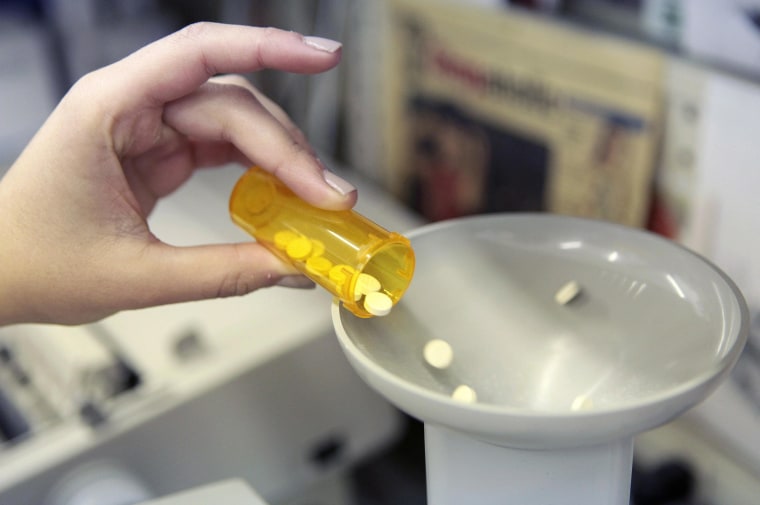Donald Trump and his team have been surprisingly aggressive in talking up some anti-malaria drugs -- most notably hydroxychloroquine -- despite the fact that the medications haven't been approved for treating COVID-19, the evidence on its efficacy is anecdotal, and there's no consensus among public-health experts, who say more research is needed. The president, however, has been unwilling to wait for science.
"Just a feeling," the Republican recently told reporters, explaining his rationale for promoting untested treatments. "You know, I'm a smart guy. I feel good about it."
On Saturday, Trump went quite a bit further during a press briefing, effectively using his White House platform to encourage Americans to take the medication. From the official transcript:
"What do you have to lose? In some cases, they're in bad shape. What do you have to lose? It's been out there for a long time, and I hope they use it.... I think people should -- if it were me -- in fact, I might do it anyway. I may take it. Okay? I may take it. And I'll have to ask my doctors about that, but I may take it."
The president went on to point to research -- which he did not identify -- that said people with lupus haven't been infected with the virus. "You know, maybe it's true, maybe it's not," he added.
As part of the same briefing, the president also boasted that the government is adding the medications to the federal stockpile. "[W]e have it stockpiled, and it's -- we have a lot of it, and we're getting more of it," Trump said.
Returning to the subject toward the end of Saturday's briefing, the president doubled down on the message: "What do you have to lose? I'll say it again: What do you have to lose? Take it. I really think they should take it. But it's their choice and it's their doctor's choice, or the doctors in the hospital. But hydroxychloroquine -- try it, if you'd like."
Yesterday, Trump pushed the same message. "I've seen things that I sort of like," the president told reporters. "So what do I know? I'm not a doctor. I'm not a doctor, but I have common sense."
He went on to say, "The FDA feels good about it. As you know, they've approved it," adding, "[I]t's not going to hurt people. It can help them, but it's not going to hurt them. That's the beauty of it. You see, it can help them, but it's not going to hurt them. What do you have to lose?"
In reality, the FDA has not approved hydroxychloroquine as a treatment for COVID-19.
When a reporter asked Dr. Anthony Fauci to weigh in on the medication's efficacy, Trump intervened, saying he's answered that question "15 times" and there was no need for the NIH specialist to answer. The press conference moved on.
This has clearly gotten out of hand. It's one thing for the confused president with a hostility toward science to publish some weird tweets about untested medicinal treatments. It's worse for him to distract public-health officials, directing them into research work they don't believe in.
But we've arrived at a point at which a sitting president is publicly encouraging people to take a medication that hasn't been proven to work. Trump has convinced himself that this position reflects a degree of "common sense."
No good can come of this. As we've discussed, such advice generates unnecessary confusion; it causes a run on drugs that other patients actually need and rely on; and it can lead some to take dangerous risks through self-medicating. Indeed, that risk isn't just theoretical.
The sooner Trump stops pretending to understand pharmacology, the better off the public will be.

